

BCA MOBILE APPLICATIONS Admission 2024, Syllabus, Eligibility, Duration
BCA MOBILE APPLICATIONS Admission 2024, Course Fees Structure, Career Prospects and Jobs Scope | Salary & PayScale for BCA MOBILE APPLICATIONS Holders | Course Duration | BCA MOBILE APPLICATIONS Specializations Admission Process | Entrance Exams for (BCA MOBILE APPLICATIONS)
BACHELOR OF COMPUTER APPLICATIONS IN MOBILE APPLICATIONS Admission | BACHELOR OF COMPUTER APPLICATIONS IN MOBILE APPLICATIONS Course Fees Structure | BACHELOR OF COMPUTER APPLICATIONS IN MOBILE APPLICATIONS Career Prospects and Jobs Scope | Salary & PayScale for BACHELOR OF COMPUTER APPLICATIONS IN MOBILE APPLICATIONS Degree Holders | BACHELOR OF COMPUTER APPLICATIONS IN MOBILE APPLICATIONS Course Duration | BACHELOR OF COMPUTER APPLICATIONS IN MOBILE APPLICATIONS Specializations | BACHELOR OF COMPUTER APPLICATIONS IN MOBILE APPLICATIONS Admission Process | Entrance Exams for (BACHELOR OF COMPUTER APPLICATIONS IN MOBILE APPLICATIONS)
BCA MOBILE APPLICATIONS
BACHELOR OF COMPUTER APPLICATIONS IN MOBILE APPLICATIONS
Computer Applications
3 Years
12th
Year
Degree
About BCA Mobile Applications
BCA is a popular course among students with a computer science background. Depending on the university, admission to BCA is based on both a performance evaluation test and an entrance exam. A student who achieves a score of 45-50% in the 12th grade mathematics subject can apply for the BCA course. In this regard, the major BCA entrance exams include CUET, SET, IPU CET, MET, etc. Registration for CUET has started and the exam will be held from May 15, 2024 to May 31, 2024. Christ University, Presidency College, SRMIST Chennai, SICSR Pune, Loyola College are the best BCA colleges in India. Average course fees range from 70,000 INR to 1,50,000 INR. BCA courses are available in a variety of formats, including: Examples: BCA distance learning courses, online courses, comprehensive courses, etc. Online BCA courses certified and certified by NAAC, AICTE, UGC are available at Online Manipal, Amity University, etc. The BCA curriculum trains and trains students to become software developers, systems analysts, web designers, and more. BCA first-year subjects include computer fundamentals, C programming, management principles, organizational behavior, and more.
BCA Mobile Applications Highlights
| Course | BCA MOBILE APPLICATIONS |
| Full Name | BACHELOR OF COMPUTER APPLICATIONS IN MOBILE APPLICATIONS |
| Eligibility | 10+2 |
| Duration | 3 Years |
| Type | Degree |
| Mode | Year |
BCA Mobile Applications Entrance Exam
Fundamentals of Computer Science Basic concepts in programming languages such as Java, Kotlin, and Swift. Data Structures and Algorithms: Understand basic data structures (arrays, linked lists, stacks, queues) and algorithms (sorting, searching). Object-oriented programming concepts: classes, objects, inheritance, polymorphism, encapsulation. Logical Thinking and Analytical Skills Analytical and logical thinking. Problem Solving Techniques and Strategies. Pattern recognition, sequence completion, and analogy. Quantitative Aptitude Arithmetic: Questions on topics such as averages, percentages, ratios, proportions, etc. Data Interpretation: Interpretation of data presented in tables, graphs, and charts. Numerical Reasoning: Problem solving using mathematical operations.
BCA Mobile Applications Admission Process
The admission process for a Bachelor of Computer Applications (BCA) degree program with a specialization in mobile applications may vary depending on the institution offering the degree program. However, the general steps in the admissions process are Study Programs: Start by looking into universities, institutions that offer his BCA programs specializing in mobile applications. Consider factors such as accreditation, faculty expertise, curriculum, facilities, and reputation. Check Admission Criteria: Check the admission requirements for her BCA program specific to mobile applications at your chosen institution. Please ensure you meet academic background, entrance exam requirements (if applicable), and other established criteria.Request an Application: Applications for mobile application-specific BCA programs are available from the admissions office, the institution's website, or online portal. Some institutions offer downloadable application forms, while others offer online application systems.
BCA Mobile Applications Duration
- The duration of the BCA program is typically three years. The course is divided into six semesters, with each semester lasting six months.
BCA Mobile Applications Selection Criteria
- The selection criteria for admission to a BCA program may vary from one university to another. Some universities may consider the candidate's performance in the entrance exam, while others may also consider their academic record.
How to Apply BCA Mobile Applications
- Candidates can apply for admission to a BCA program through the university's website or by visiting the college campus. The application process may involve filling out an online application form and submitting the necessary documents.
Bca Mobile Applications Application Form
- The application form for a BCA program may include personal details, educational qualifications, and other relevant information. Candidates may also have to upload scanned copies of their documents, such as their 10+2 mark sheet and a passport-sized photograph.
BCA Mobile Applications Application Process
- The application process for a BCA program typically involves registering on the university's website, filling out the application form, uploading the required documents, and paying the application fee.
BCA Mobile Applications Fee
- The fee for a BCA program may vary from one university to another. The average fee for a BCA program is around Rs. 50,000 to Rs. 1,50,000 per year.
BCA Mobile Applications Syllabus
The BCA program syllabus typically includes courses on computer programming, software engineering, data structures, algorithms, computer networks, database management systems, and web technologies. Students may also have the opportunity to specialize in a particular area of computer science, such as mobile application development or artificial intelligence.
BCA Mobile Applications Salary and Jobs
- BCA graduates can find employment in a variety of industries, including software development, web development, and mobile application development. The starting salary for BCA graduates is typically between Rs. 2.5 lakhs to Rs. 3.5 lakhs per annum, depending on their skills and experience.
BCA Mobile Applications Career Opportunities
There are many career opportunities for BCA graduates, including software developer, web developer, mobile application developer, database administrator, network administrator, and systems analyst. BCA graduates can also pursue higher studies in computer science, such as an MCA or an MBA in information technology.
BCA Mobile Applications is a Degree level course in Vocational Courses. Mobile innovation is a type of innovation that is for the most part utilized in cell correspondence and other related perspectives. It utilizes a type of stage whereby numerous transmitters can send information simultaneously on a solitary channel. This stage is called code-division different access (CDMA). This stage enables numerous clients to utilize single frequencies since it limits the probability of obstruction of frequencies from at least two sources. This channel has developed throughout the years. The portable innovation is quickly developing; throughout the years, its uses are turning out to be assorted and is step by step supplanting some comparative sources in the market that are additionally utilized for correspondence for the example post office and landlines.
Eligibility
- The base capability required for induction into a recognition course is going of the Secondary School Leaving Certificate (SSLC)/tenth standard/comparable assessment, with at any rate in science and maths subjects. The state loads up of specialized training of the vast majority of the states in India lead passage tests for admission to the confirmation projects offered by different polytechnics in the state.
Career Prospects
- Wireless Communication
- Wireless Technology
- Mobile Technology
- Mobile Manufacturers
- Telecommunication Firms
Documents Required For BCA MOBILE APPLICATIONS Admission
- Mark sheet and pass certificate of your Class X or XII examination.
- Proof of date of birth.
- School leaving certificate
- Transfer certificate
- Domicile certificate/ residential proof or certificate
- Provisional certificate
- Character certificate
- Scheduled Caste/ Scheduled Tribe/Other Backward Caste certificates
- Proof of disability (if any)
- Migration Certificate
NOTE:- Every college issues a list of documents required. Make sure you have all documents on this list when you apply. Remember to take attested photocopies of all the above. Don't forget to take with you the amount to pay for fees in cash or demand draft.
BCA MOBILE APPLICATIONS: Course Highlights
Given below are few of the important highlights of the program.
| Program Full Name | BACHELOR OF COMPUTER APPLICATIONS IN MOBILE APPLICATIONS |
| Program Level | Degree |
| Duration of the Program | 3 Years |
| Examination Type | Year |
| Eligibility | |
| Admission Process | Entrance Exam and Merit Based |
| Average Program Fee | Upto Rs. 1 Lakh |
BCA MOBILE APPLICATIONS: Syllabus
Syllabus of Computer Applications as prescribed by various Universities and Colleges.
| Paper Code | Subjects of Study |
| 1 | English - I |
| 2 | Computer Fundamentals & Organization |
| 3 | C Programming Lab |
| 4 | Algebra, Calculus and Trigonometry |
| 5 | Programming in C |
| 6 | Linux Lab |
| 7 | Communication Skills |
| 8 | Introduction to Linux |
| 9 | English –II |
| 10 | Operating System |
| 11 | OOPS with C++ Lab |
| 12 | Probability and Statistics |
| 13 | OOPS with C++ |
| 14 | Data Structures Lab |
| 15 | Fundamentals of Storage Management |
| 16 | Data Structures using C |
| 17 | Reasoning and Thinking |
| 18 | RDBMS |
| 19 | RDBMS Lab |
| 20 | Information Security Fundamentals |
| 21 | Computer Networks |
| 22 | Programming in JAVA Lab |
| 23 | Software Engineering |
| 24 | Programming in JAVA |
| 25 | Employability Skills |
| 26 | Basic Android |
| 27 | Ethical Hacking Lab |
| 28 | Ethical Hacking Fundamentals |
| 29 | Mobile Architecture and App Development |
| 30 | Basic Android Lab |
| 31 | Cryptography Fundamentals |
| 32 | Mobile, Wireless and VOIP Security |
| 33 | Computer Forensics and Investigation |
| 34 | Advanced Android |
| 35 | Computer Forensics and Investigation - Lab |
| 36 | Virtualization and Cloud Security |
| 37 | Mobile Ecosystem, Business Analysis and Models |
| 38 | Advanced Android – Lab |
| 39 | IT Governance, Risk, & Information Security Mgt. |
| 40 | Enterprise Application Development |
| 41 | Mobile Testing |
| 42 | Project and Viva-Voce |
Colleges offering BCA MOBILE APPLICATIONS in India
Mentioned below are some states in India that offer the program.
Top Colleges 2024
-

Madhav University - MU
Sirohi, Rajasthan -

SunRise University - SRU
Alwar, Rajasthan -

Indira Gandhi National Open University - IGNOU
Delhi, Delhi -
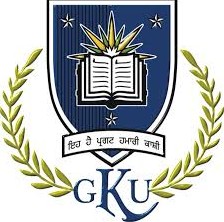
Guru Kashi University - GKU
Bathinda, Punjab -
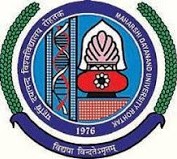
Maharshi Dayanand University - MDU
Rohtak, Haryana -

Pacific University - PU
Udaipur-Rajasthan, Rajasthan -
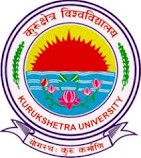
Kurukshetra University - KU
Kurukshetra, Haryana -
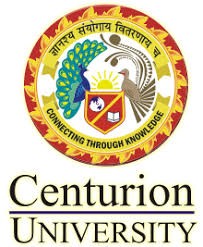
Centurion University of Technology and Management - CUTM
Visakhapatnam, Andhra Pradesh -

KREA University - KU
Sricity, Andhra Pradesh -
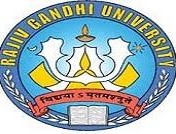
Rajiv Gandhi University - RGU
Papum Pare, Arunachal Pradesh -

SRM University - SU
Guntur, Andhra Pradesh -
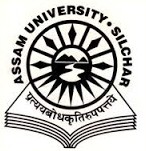
Assam University - AU
Silchar, Assam -

Tezpur University - TU
Sonitpur, Assam -

Central University of South Bihar - CUSB
Fatehpur-Bihar, Bihar -

Mahatma Gandhi Central University - MGCU
Motihari, Bihar -

Nalanda University - NU
Rajgir, Bihar -

Jamia Millia Islamia - JMI
New Delhi, Delhi -

VIT-AP University - VU
Guntur, Andhra Pradesh -

Apex Professional University - APU
East Siang, Arunachal Pradesh -

Arunachal University of Studies - AUS
Namsai, Arunachal Pradesh -

Arunodaya University - AU
Itanagar, Arunachal Pradesh -

Himalayan University - HU
Itanagar, Arunachal Pradesh -

North East Frontier Technical University - NEFTU
West Siang, Arunachal Pradesh -

Indira Gandhi Technological and Medical Science University - IGTMSU
Ziro, Arunachal Pradesh -

Venkateshwara Open University - VOU
Naharlagun, Arunachal Pradesh -

Assam Don Bosco University - ADBU
Azara, Assam -

Assam Down Town University - ADTU
Guwahati, Assam -
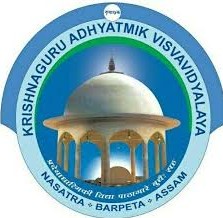
Krishnaguru Adhyatmik Visvavidyalaya - KAV
Barpeta, Assam -

Mahapurusha Srimanta Sankaradeva Viswavidyalaya - MSSV
Nagaon, Assam -
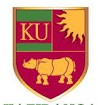
The Assam Kaziranga University - AKU
Jorhat, Assam -
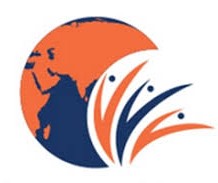
The Assam Royal Global University - ARGU
Guwahati, Assam -

Amity University - AU
Patna, Bihar -

Dr C. V. Raman University - CVRU
Vaishali, Bihar -

Gopal Narayan Singh University - GNSU
Rohtas, Bihar -

K K University - KKU
Nalanda, Bihar -

Sandip University - SU
Madhubani, Bihar -
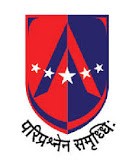
Ahmedabad University - AU
Ahmedabad, Gujarat -
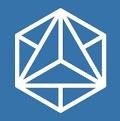
Anant National University - ANU
Ahmedabad, Gujarat -
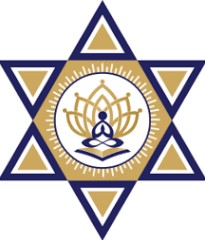
Atmiya University - AU
Rajkot, Gujarat -
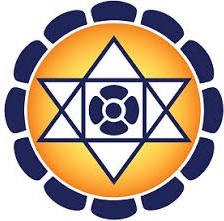
AURO University of Hospitality and Management - AUHM
Surat, Gujarat -

C. U. Shah University - CUSU
Wadhwan, Gujarat -

Calorx Teacher's University
Ahmedabad, Gujarat -
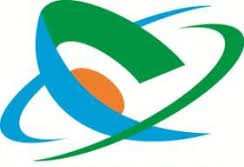
Charotar University of Science & Technology - CUST
Anand, Gujarat -

Jawaharlal Nehru University - JNU
Delhi, Delhi -

Dhirubhai Ambani Institute of Information and Communication Technology - DAIICT
Gandhinagar, Gujarat -

G.L.S. University - GU
Ahmedabad, Gujarat -
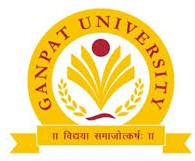
Ganpat University - GU
Mehsana, Gujarat -
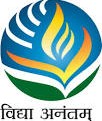
Gokul Global University - GGU
Sidhpur, Gujarat -

GSFC University - GU
Vadodara, Gujarat -

Indian Institute of Public Health - IIPH
Ahmedabad, Gujarat
PH.D. Thesis Writing Assistance/Paper Publication Services
- UGC Care List Journal Publication Services
- Scopus Journal Publication
- Proposal / Synopsis Writing
- Topic Suggestion
- Ph.D. Thesis Writing
- Dissertation Writing
- Research Paper Writing
- Paper Publication with ISSN Number
- Conference / Seminars
- PowerPoint Presentation
- Data Collection / Analysis
- Plagiarism Correction
- Plagiarism Report TURNITIN / URKUND
- Book Publication
- Ph.D. Thesis Concert into Book
- All Research Work
- Complete Research Work
- Indexed Journals - Scopus
- UGC Care Journal
- Research Review Journal
- Home |
- About Us |
- Privacy Policy |
- Terms & Conditions |
- Contact Us |
- PH.D. |
- Admission 2024 |
- Our Team |
- Visitor: 385232134